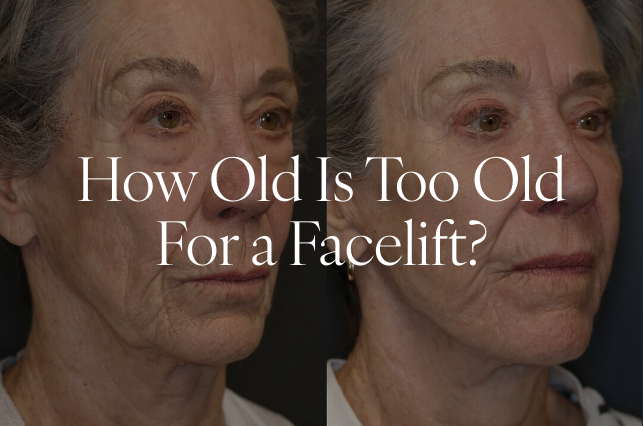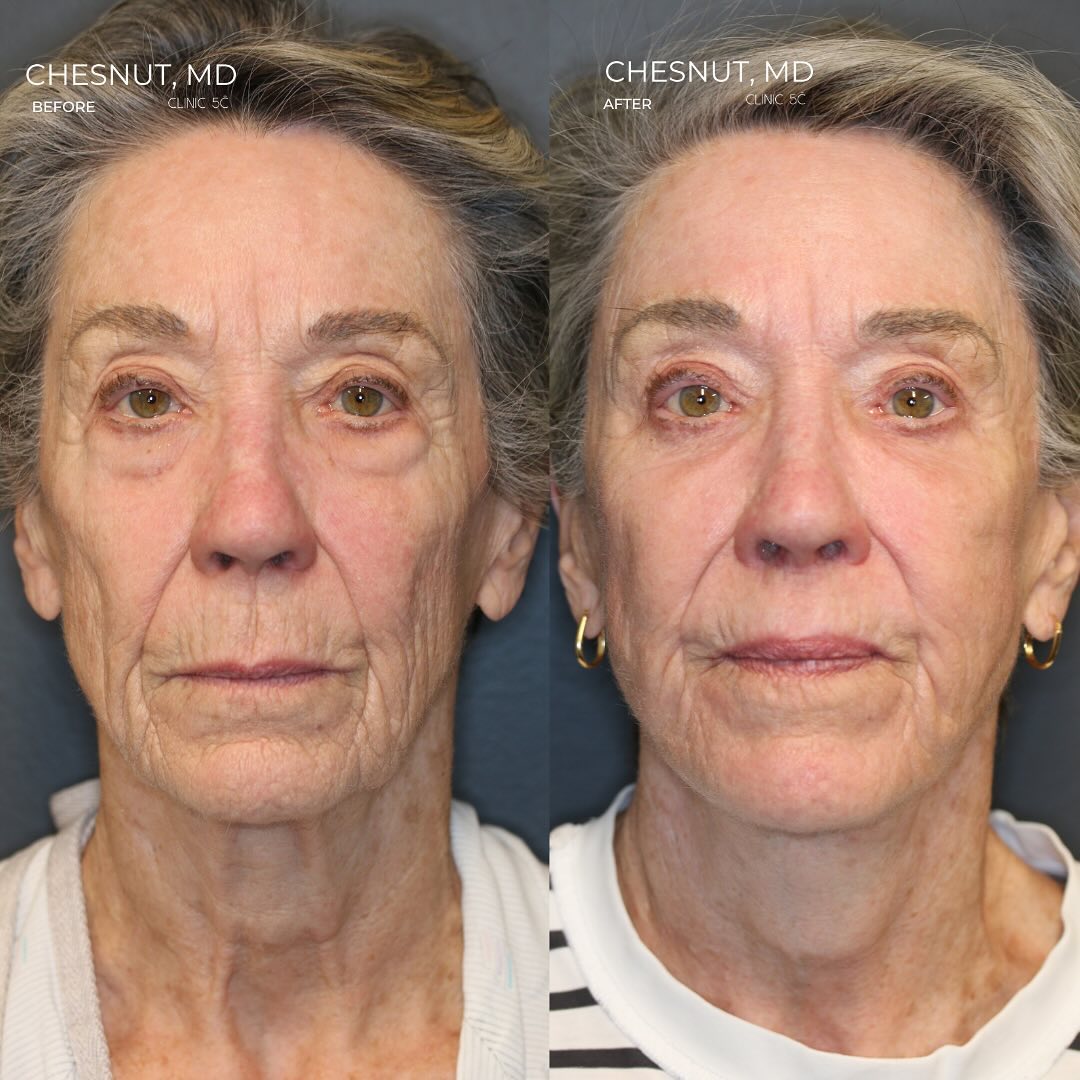How Old is Too Old For A Facelift?

Reviewed by Dr. Cameron Chesnut, Facial Plastic Surgeon
Age is a common consideration when evaluating candidacy for facelift surgery, and one of the most frequently asked questions among prospective patients is whether there is a point at which facial rejuvenation becomes "too late."
While much of the public discourse centers on facelifts in the 40s or 50s, individuals in their 70s, 80s, or beyond may still be excellent candidates, depending on their overall health, goals, and expectations.
At Clinic 5C, patients of all ages are evaluated through a holistic lens that prioritizes both physical readiness and emotional alignment with the treatment decision.
Defining “Worth It” on an Individual Level
Some believe that facelifts are only most effective when performed earlier in the aging process, when skin laxity is less advanced and tissues are more responsive.
However, this perspective overlooks a fundamental principle of aesthetic medicine: the value of any treatment is highly personal.
For some older patients, the goal is not to appear decades younger, but to restore balance between external appearance and internal vitality.
In these cases, facial rejuvenation may offer emotional and psychological benefits, provided it is approached with thoughtful planning and medical oversight.
Is There an Age Limit for Facelift Surgery?
There is no fixed age limit for facelift procedures. Instead, candidacy is determined by a combination of factors, including:
- Overall health and surgical fitness: Patients should be in good general health, with well-managed medical conditions and the ability to tolerate anesthesia and recovery.
- Anatomical factors: The degree of skin laxity, fat displacement, and structural volume loss will influence the type of procedure recommended and the potential outcomes.
- Personal motivation and expectations: Successful outcomes are closely linked to realistic goals and a desire to enhance appearance in a way that aligns with self-image.
For example, a patient in their 80s who is physically active and emotionally motivated may have a smoother recovery and high satisfaction rate compared to a younger patient with different circumstances.

What Results Can Be Expected Later in Life?
Facelift outcomes in older patients are unique.
While younger patients may experience longer-lasting results due to higher collagen density and more elastic skin, older patients can still achieve meaningful improvement in facial harmony, jawline definition, and skin tone.
Results are often best measured by how well the outcome matches the individual’s goals, rather than by age-based benchmarks.
A Personalized Approach to Facial Aging
Facial aging is not uniform. Some individuals begin to notice early structural changes in their 40s, while others retain youthful features well into later decades. Genetics, sun exposure, weight fluctuations, and lifestyle all play a role in how quickly changes occur.
Because of this, facelift candidacy is best assessed on a case-by-case basis, not by age alone.
Dr. Cameron Chesnut and the Clinic 5C team take a comprehensive, regenerative approach to facial rejuvenation, incorporating advanced techniques that support tissue integrity, minimize recovery time, and prioritize natural results.
Conclusion
Facelift surgery is not defined by age, but by alignment. It's between health status, anatomical needs, and personal goals.
Whether in the 50s or the 80s, patients considering facial rejuvenation should work with a qualified surgeon to explore whether the procedure fits their vision for the future.
At Clinic 5C, facelift consultations are designed to educate, inform, and empower. There is no fixed “right time” but rather, only the time that is right for the individual.
Ready to begin your wellness journey?
Fax: (844) 961-3417
Fax: (844) 927-4793



